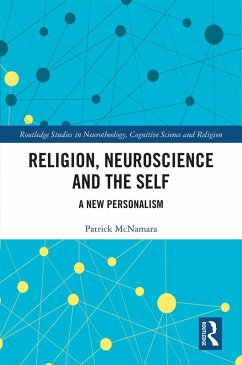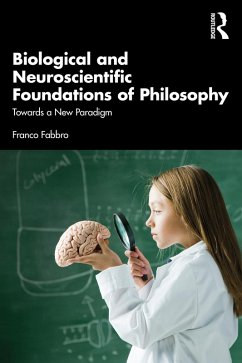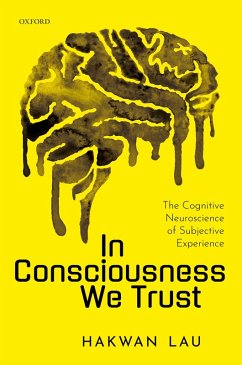
Self-Face Recognition and the Brain (eBook, PDF)
How the Neuroscience of Mirror Recognition Has Changed Psychology, Psychiatry, and Evolution
Redaktion: Keenan, Julian Paul; Hopkins, William D.; Quevedo, Karina
Versandkostenfrei!
Sofort per Download lieferbar
45,95 €
inkl. MwSt.
Weitere Ausgaben:

PAYBACK Punkte
23 °P sammeln!
Self-Face Recognition and the Brain explores a fundamental cornerstone of human consciousness; how recognizing ourselves leads to a better understanding of the brain and higher-order thinking.Featuring contributions from an interdisciplinary range of researchers, each chapter provides a unique insight into one aspect of self-face recognition. The book begins by introducing readers to the concept of self-face recognition, covering issues like the mirror-test and whether animals can recognize themselves, before addressing the role of neural correlates and attempts at localizing consciousness. It...
Self-Face Recognition and the Brain explores a fundamental cornerstone of human consciousness; how recognizing ourselves leads to a better understanding of the brain and higher-order thinking.
Featuring contributions from an interdisciplinary range of researchers, each chapter provides a unique insight into one aspect of self-face recognition. The book begins by introducing readers to the concept of self-face recognition, covering issues like the mirror-test and whether animals can recognize themselves, before addressing the role of neural correlates and attempts at localizing consciousness. It then discusses various disorders and the impact they can have on self-face recognition before considering how neuroscience can heighten our understanding of the field.
It will be an essential read for all researchers of self-face recognition, from psychology, philosophy, and neuroscience backgrounds.
Featuring contributions from an interdisciplinary range of researchers, each chapter provides a unique insight into one aspect of self-face recognition. The book begins by introducing readers to the concept of self-face recognition, covering issues like the mirror-test and whether animals can recognize themselves, before addressing the role of neural correlates and attempts at localizing consciousness. It then discusses various disorders and the impact they can have on self-face recognition before considering how neuroscience can heighten our understanding of the field.
It will be an essential read for all researchers of self-face recognition, from psychology, philosophy, and neuroscience backgrounds.
Dieser Download kann aus rechtlichen Gründen nur mit Rechnungsadresse in A, B, BG, CY, CZ, D, DK, EW, E, FIN, F, GR, HR, H, IRL, I, LT, L, LR, M, NL, PL, P, R, S, SLO, SK ausgeliefert werden.













